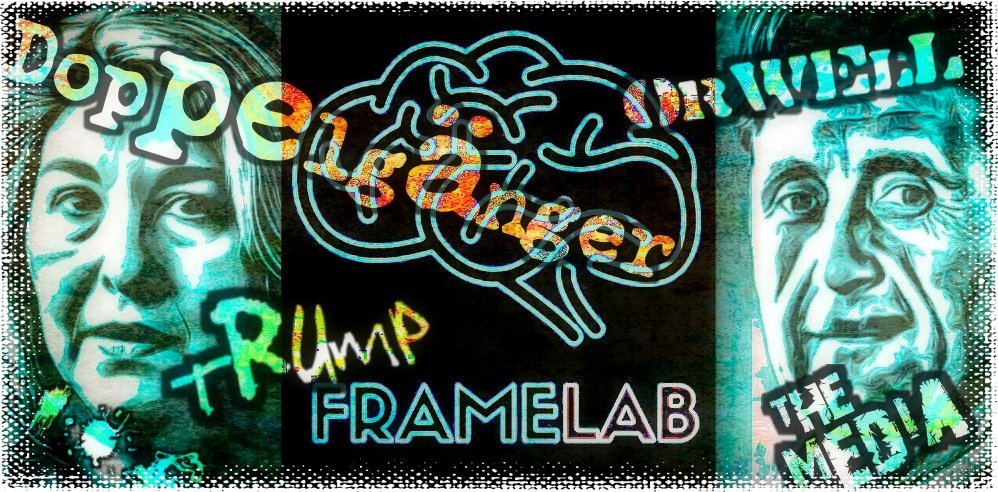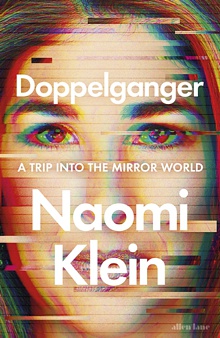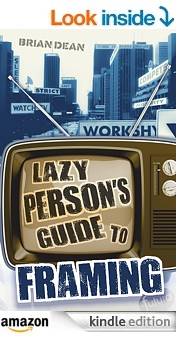December 2023 updates – essential reading

Some essential reading, items of interest & updates for Winter.
FrameLab
FrameLab is a website written by George Lakoff and Gil Duran. It has insightful up-to-date commentaries focusing on the U.S. political situation and its media framing. Recent posts include the misappropriation of Orwell’s ideas by some US Republicans and others, Elon Musk’s attempts to use algorithm warfare to shift political discourse rightwards, various ways journalists can combat Trump’s normalisation of lying, etc.
You can choose to read a free or paid subscription version of FrameLab, and there’s a newsletter. (If you get the standard Substack opening page which asks for your email address, you don’t have to supply it – you can click on “no thanks” and still read the website).
Doppelganger

You probably saw this summer’s announcements for Naomi Klein’s new book, Doppelganger. I got a copy as soon as it came out – I’d been intrigued by the previews, particularly where Klein talked of influencers such as Steve Bannon co-opting some major ‘left’ tropes to create a “Mirror World” of dissent (of sorts). This refers to the new wave of “anti-establishment” messaging flooding social media, which self-represents as neither “left” nor “right”, yet typically detours to radical-right positions, often packaged with conspiriologic (on anti-vaccine, Deep State memes, etc).
Quite early on in the book, Doppelganger digresses from the widely previewed topics, thus not giving them the thorough investigation I’d expected. This isn’t really intended as a criticism (although I felt slightly disappointed), since the topics that Naomi moved onto – long sections on child autism, her views on parenting, Zionism, etc – have importance in their own right, and she integrates them into her main theme convincingly.
As it happens, the Guardian published an extended extract of Doppelganger prior to the book’s publication (it’s the preview that led to me getting the book). This is the part of the book that interested me most, and which I wrongly assumed would be investigated in greater detail in the rest of the book. In any case, I rate it as essential reading in its own right, as a long-read article:
https://www.theguardian.com/books/2023/aug/26/naomi-klein-naomi-wolf-conspiracy-theories
2023 book on media framing
I’d already written, back in 2016/17, about the appropriation of “anti-establishment” tropes of dissent by radical ‘rightwing’ commentators in both UK and US (eg here and here, on Brexit and Trump).
My much extended and updated 2023 book, Lazy Person’s Guide to Framing, brings these topics up-to-date, including an analysis of how and why Steve Bannon utilised these old ‘left’ frames for his own far-right political project. (This pre-dates Naomi Klein’s book and uses a slightly different approach – semantic framing and Marshall McLuhan’s tetrad – but draws pretty much the same conclusions as Naomi on the question of what Bannon & Co. seem to be up to).
If you missed the plug for my book (I posted it back in February), check it out!
Btw, old news-frames never die! They just get re-animated like corpses in horror films, or re-heated like yesterday’s food. A recent re-heated example of the economic flatlining frame.
The Coming Wave

A lot has been written about the potentials and threats of AI, of course. The Coming Wave, a new book by Mustafa Suleyman, stands out, for me, for a few reasons. Firstly, the author, a genuine ‘AI insider’ (previously co-founder of DeepMind, and Google’s AI policy & product management VP), considers the possible (and in many cases likely or even inevitable) social and political ramifications of the new wave of technology. How these technologies will radically transform societies at virtually every level – a somewhat more interesting (and urgent) issue than whether the latest chatbot seems human enough to flirt with.
Secondly, he presents the scenarios with wide-ranging knowledge, depth of insight and concern at many of the implications. It all seems very vivid, more-than-plausible and in several cases absolutely terrifying. Which is why the author strongly advocates action now to mitigate and regulate some of these real-dystopian trajectories. Thankfully, it doesn’t all look bleak – the positive potentials of the new wave seem truly marvelous and astounding (as you might expect), and the book takes you there as well.
If you think you already know enough about it – you don’t! This book seems like a good start, and I felt encouraged by the remarkable long list of important and prominent people in multiple fields who have provided an endorsement in the book’s blurb pages. It tells me that at least they seem aware of some of these social/political issues – as we all should be.
Noise

Daniel Kahneman is one of those eminent folks who endorses The Coming Wave. A Nobel-prize winner, famous for his book, Thinking, Fast and Slow (which I’m currently in the middle of re-reading), Kahneman has a new book out, which previously escaped my notice (it was published in 2021): Noise: A Flaw in Human Judgment (co-written with Olivier Sibony and Cass Sunstein).
Like dreams and jokes, what we loosely call “cognitive biases” tend to easily get forgotten – unless we make a conscious effort to remember them. I mean, how many heuristics (cognitive shortcuts) from the behavioral science literature can you list off the top of your head? How many common logical fallacies? This is one of the reasons I’m re-reading Thinking, Fast and Slow. The experience seems very much: “Oh, gosh, I’d forgotten all about that!”.
Kahneman also co-edited and abundantly contributed to (with his late colleague Amos Tversky) a book titled Choices, Values, and Frames, which I’ve recently obtained a digital copy of (it’s a collection of somewhat technical articles on decision making, ‘Prospect Theory’, behavioral economics, consumer psychology, etc).
Reading these books, particularly Thinking, Fast and Slow, it strikes me how relevant the ideas – the various cognitive biases described – seem to the everyday presentation (framing) and digestion of “news”. Not only in the ways documented by popular authors such as Rolf Dobelli (and of course George Lakoff), but in the “Mirror World”, where fact-checks get shrugged off as part of The Conspiracy, audience stats trump all other stats, and what Kahneman and Tversky call “System 2” routinely gets its crutches kicked out from under it.
Cost of fixing Britain
This Guardian article, from George Monbiot, makes a good attempt at quantifying the money that needs to be spent to repair Britain’s infrastructure and public services after decades of chronic underfunding and political neglect. Here’s the section on the NHS:
‘Some estimates are well-established. The NHS funding deficit – the cumulative difference between the 4% annual increase a modern health system needs to cope with ageing populations and technological change, and what it has received since 2010 – is £200bn. The current annual increase is 0.1%. Restoring the proper funding increase would start at £7bn a year, while addressing the historic shortfall would be an additional £10bn per year.’
Britain is Broken. What will Fix it? – George Monbiot


